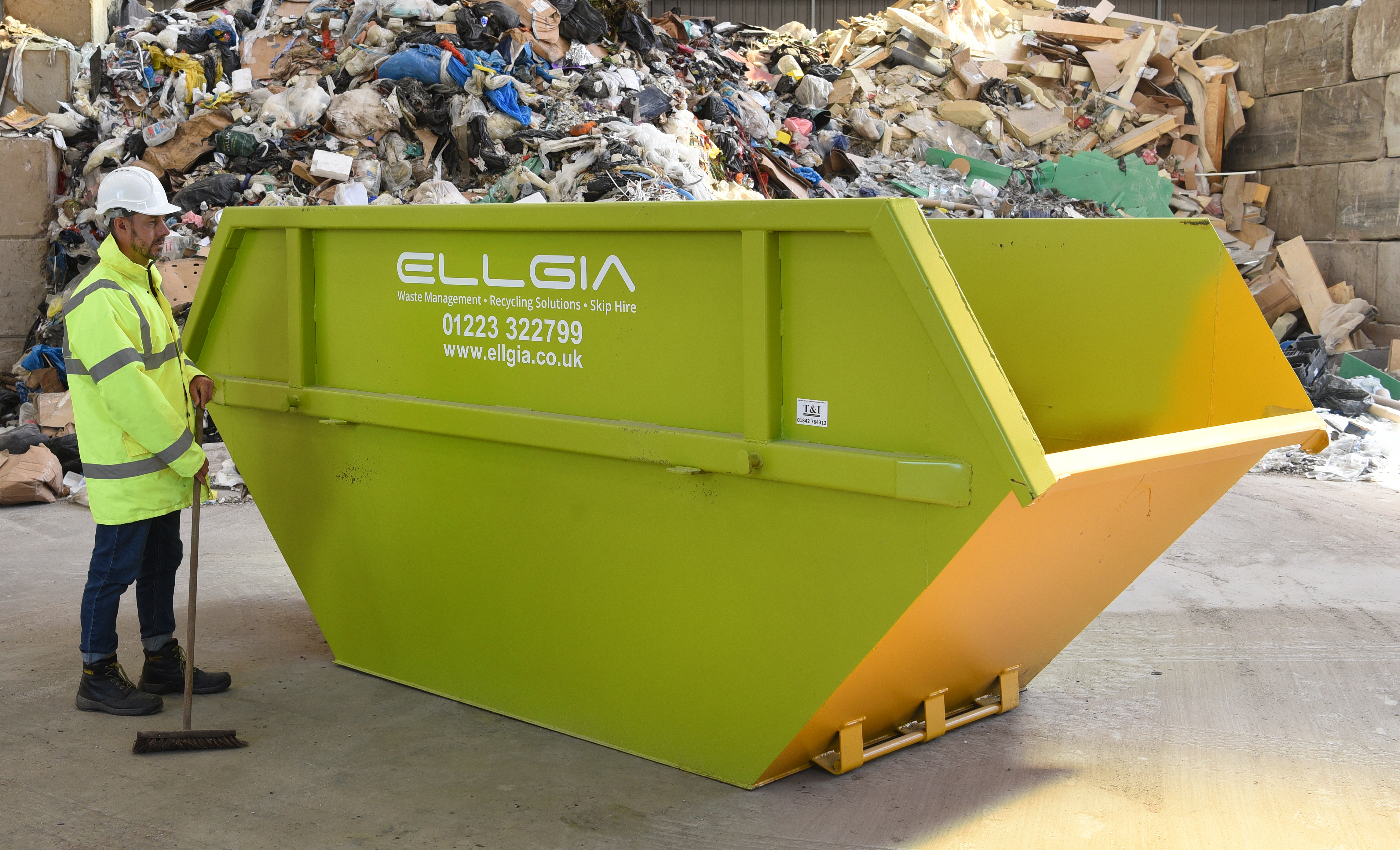How Contamination Gets Identified During Collection
Contamination is typically identified during pre-collection visual inspections, when drivers assess bins before loading. This process helps protect the quality of recyclable materials and prevents damage to sorting equipment.
Common contamination identified during collection includes:
Food waste or liquids in recycling bins.
Batteries, electrical items, or textiles mixed with recyclables.
General waste items in recycling containers.
Heavily soiled packaging that hasn't been properly cleaned.
Non-recyclable materials mixed with recyclable streams.
When contamination is identified, collection must be refused to maintain the quality of materials already collected and protect processing equipment.
The Notification Process
When contamination is discovered, several steps follow to ensure proper handling and documentation.
Collection is halted to prevent contaminated materials from compromising clean recyclables already on the collection vehicle.
You receive notification by e-mail explaining why the collection was refused and identifying the contamination found. A follow-up phone call may be made if required.
Documentation is created recording the contamination incident, including the type of contamination and date of refusal.
Your account is updated to ensure the contamination issue is addressed before future collections proceed.
How to Resolve the Contamination Issues
Once contamination is discovered, you need to decide how to proceed. You have two options to get your waste collected, each with different timescales, costs, and implications for your business operations.
Option 1: Remove Contamination and Reschedule Collection
The Process:
Remove all contaminated items from your recycling.
Separate recyclable materials from non-recyclable contamination.
Contact your waste management provider to confirm contamination removal.
Arrange rescheduled collection.
Considerations:
Requires staff time for contamination removal, with the effort varying depending on the type and extent of contamination.
May involve rescheduling fees if collections need to be rearranged.
Materials remain in the recycling stream, maintaining environmental benefits.
Option 2: Arrange General Waste Collection
The Process:
In some cases, contaminated recycling may need to be collected as general waste.
Where suitable, a general waste collection can be arranged to resolve the situation.
Additional charges may apply to reflect higher disposal costs.
Compliance requirements must be considered under current regulations.
Considerations:
Provides immediate resolution without sorting requirements.
Involves general waste collection charges (typically 40-60% higher than recycling).
May include emergency collection premiums.
Results in lost recycling rebates or reduced charges.
The financial advantage of removing contamination increases with larger waste volumes.
Compliance Under Current Regulations
Contamination incidents have significant implications for regulatory compliance. All contamination incidents are documented and form part of your waste management record, which regulators may consider during assessments. Frequent contamination suggests potential systemic issues with waste management practices and could attract regulatory attention. When businesses repeatedly opt for general waste collection rather than addressing contamination causes, this may indicate non-compliance with separation requirements. Demonstrating commitment to proper waste management requires addressing contamination causes rather than simply managing the symptoms.
Prevention vs. Reaction
Many businesses focus on resolving individual contamination incidents rather than addressing the underlying causes. However, taking a proactive approach to prevention delivers better long-term results.
Reactive approach:
Contamination incidents can result in additional costs.
Multiple incidents across the year can increase overall spend.
Additional operational disruption and compliance risks.
Preventive approach:
May involve initial system improvements.
Requires ongoing monitoring and staff training.
Prevention typically delivers return on investment within the first year whilst reducing operational disruption.
How Ellgia Supports Contamination Management
When contamination is discovered in collections we manage, our approach focuses on practical resolution and prevention.
Clear Communication: We provide prompt notification explaining what contamination was found and outlining your options.
Flexible Solutions: We work with you to identify the most appropriate resolution based on your operational requirements.
Prevention Guidance: We help identify contamination causes and suggest practical measures to prevent future incidents.
System Support: We provide ongoing guidance to help improve waste management systems and reduce contamination risks.
Building Effective Contamination Management
For businesses wanting to minimise contamination risks whilst maintaining operational efficiency, a comprehensive approach works best. Successful contamination management combines prevention with effective incident response. This involves implementing robust segregation systems that minimise accidental contamination and establishing regular monitoring to identify and address contamination risks before they affect collections. Equally important is ensuring team awareness so everyone understands proper waste separation requirements, whilst working with waste management companies that support contamination prevention and provide clear guidance when issues arise.
Moving Forward
Contamination incidents can be managed effectively with proper procedures and proactive planning. The key is developing systems that prevent most contamination whilst being prepared to respond efficiently when issues occur.
Effective contamination management requires both prevention strategies and incident response procedures. This combination ensures smooth waste management operations whilst maintaining compliance and cost control.
Contact Ellgia today to discuss contamination prevention and response strategies that work for your business.
Call us on 01223 322799 or email info@ellgia.co.uk to arrange your consultation.




